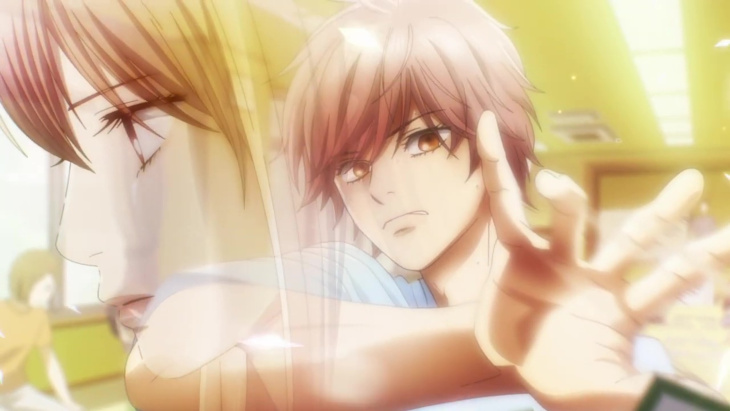
“The Hundred Poets are amazing aren’t they? They give you the words, the metaphors, to express yourself. I thought it was the coming of spring that made you seem so blurry around the edges of late. You seem about to fall apart yourself, but… perhaps the Hundred Poets have been holding you together.”
If I were to list off my favorite long-running drama anime franchises, Chihayafuru might well top the list. There would be a few competitors, mind you. Neither Natsume Yuujinchou nor Maria Watches Over Us would go down without a fight, but Chihayafuru is a series that excels at taking the best elements of the drama, sports, slice-of-life, and romance genres and combining them into a seamless whole. However, Season 3 faces a new and unique challenge on two separate fronts. The releases of the first two seasons were separated by only a year, but it took six long years for Season 3 to arrive, and, for a show like Chihayafuru, that introduces new problems into the mix. You see, Chihayafuru lives and breathes through its delicate implementation of side characters and rivals. That’s not to suggest that our main three characters can’t carry the drama, but it is the nuance expressed in the characterization of the surrounding cast that makes the franchise such a gem. However, after so many years away, it can be difficult to jump right back in with the myriad of players that the series has introduced. This is admittedly a minor gripe based around timing, but it leads into a more centralized issue that this season faces. It focuses a bit too much on the three main characters.
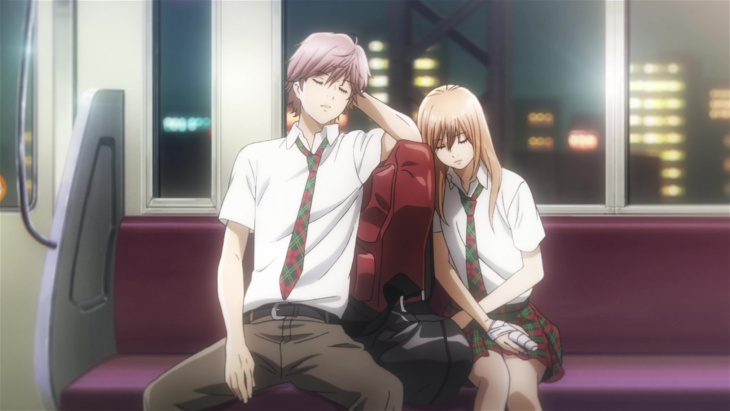
For the sake of those who haven’t delved into the series and are wondering whether it is worth sampling, I’ll provide a basic overview. The three main characters of the series are Chihaya Ayase, Taichi Mashima, and Arata Wataya. Technically, Arata’s role as a main character comes with a little question mark attached, as his interactions with Chihaya and Taichi are hindered by the long-distance nature of their relationship. The series follows the three as they engage in the world of competitive karuta, a game based around memorization and reflexes which uses the collection of Japanese poems called the Ogura Hyakunin Isshu, which is commonly translated as The Hundred Poets. Given that I’ve been discussing Eizouken and Ping Pong: The Animation lately, I can’t help but feel like a broken record when I say that the real focus of Chihayafuru isn’t even karuta itself, but rather how passion can differ from person to person but still serve to unify. This is one aspect in which focusing on the three main leads can prove to be a slight weakness, as it means putting their passion under more of a microscope and there is less opportunity to see it influence and be influenced by others. Long story short, Season 3 spends a bit more time examining the romantic feelings that Arata and Taichi harbor for Chihaya, and while this is rewarding in its own right, this approach can feel neglectful towards some of the other characters.
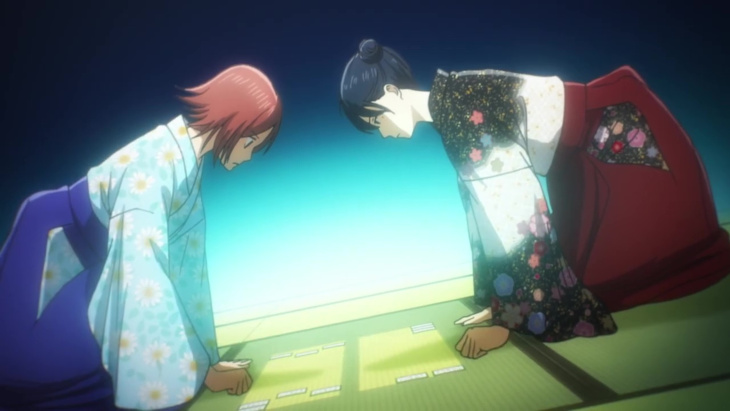
I mentioned in my review of Eizouken that it arguably robbed Chihayafuru of the crown for “Best Anime of Winter 2020.” That being said, it was a narrow victory, and when one looks at Chihayafuru’s competition from spring, the only notable opponent would appear to be Beastars (Which I’ve heard good things about, but haven’t watched). This is to say that, while I may have expressed some gripes over the hiatus that the show took and a mild shift in the show’s primary focus through Season 3, Chihayafuru still knocks it out of the park. Some of my favorite character moments from this season came from this series. Desktomu and Hanano had some stellar moments of character development that were truly rewarding, and the current and former karuta Queens, Shinobu and Inokuma, stole scenes like crazy. Chihayafuru uses character dynamics like a sledgehammer, leaving behind a sense of devastation at one moment and a promise of new beginning in the next. The only character that I remain significantly confused by is the current karuta Master, Suo, whose bizarrely brutal observations can leave both viewers and characters at odds with him. When even Chihaya doesn’t seem to like a character, you know that he’s divisive. It’s not that I hate him, but I still don’t fully understand his mentality.
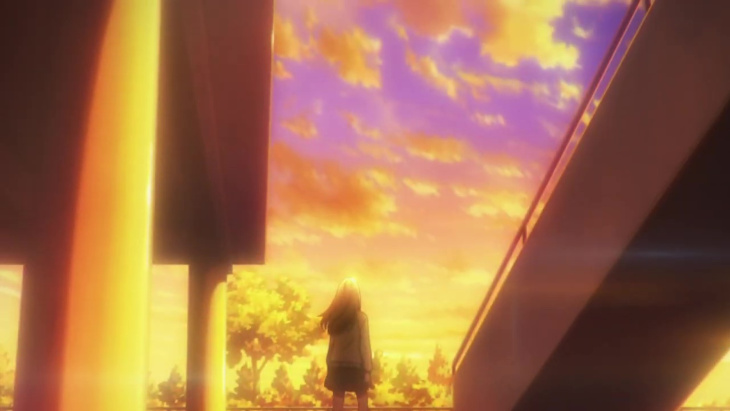
As for the production… when has Madhouse ever dropped the ball? I mean this as a legitimate question. When I’m not reviewing anime, I don’t tend to commit the production companies to memory, so I may be overlooking a title that should be obvious to me. Hell, Devil May Cry is arguably the least memorable anime that I’ve ever seen, but it still had some solid effort put into the visuals (They did work on All Out!!, but I’m willing to place the blame for that on the obnoxious character designs). So it should come as no surprise that Madhouse continued knocking it out of the park with Chihayafuru. Kousuke Yamashita’s scoring matches the show perfectly, and I’ll sometimes be walking around and suddenly have the opening chords of the Main Theme run through my head. It’s hard to address how much I adore, and I mean adore, the background music for this series. When the first episode of the season opened up with the aforementioned main theme I got a little choked up. Ultimately, I only have one gripe with Madhouse’s production, and it’s that they haven’t announced Season 4 yet.
Before I wrap up, a few Notes and Nitpicks:
- No joke, when I first started up this season, I had no recollection of who Hanano or Tsukuba were. I’d revisited the first season, but hadn’t rewatched the second, so I had completely forgotten the team had acquired new members!
- I probably gave it away in my discussion of the music, but the Main Theme is probably my favorite track from the soundtrack, but I can’t deny that tracks like Karta Nante hold a similar place in my heart. I should take the time to just sit back and listen to this soundtrack when I get a chance.
- Hanano might just get the MVP award this season. Her growth and acceptance of responsibilities were a distinct highlight. I wish Desktomu had a chance to reach a particular milestone in his storyline, but his concern for his teammates and his analysis of his own goals were perfectly designed to hit viewers in the warm, fuzzy feelings.
- It seems to me that Arata was at the forefront of this season more than the previous two. The pacing for his appearances was a little weird at points, but watching him attempt to expand and explore his enthusiasm for the game proved to be very heartwarming, particularly as the season reached its close.

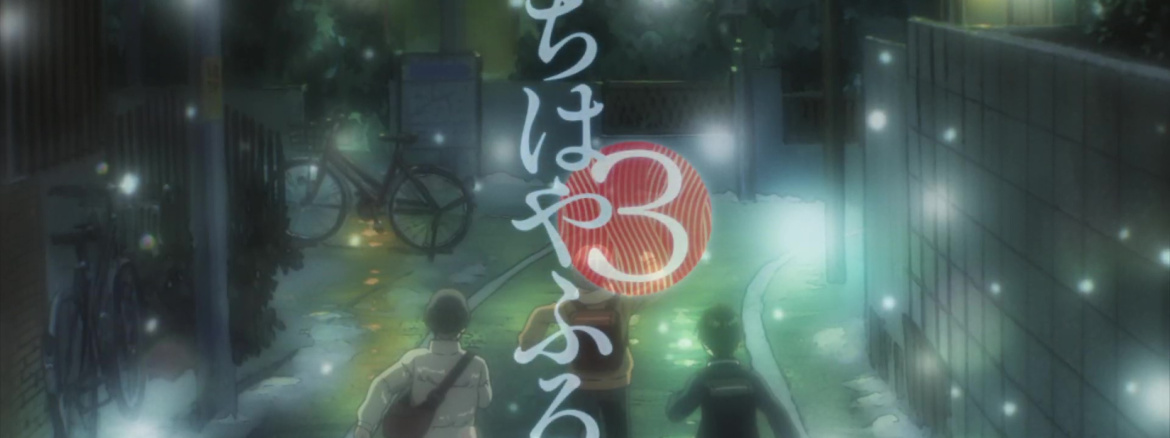


Add comment